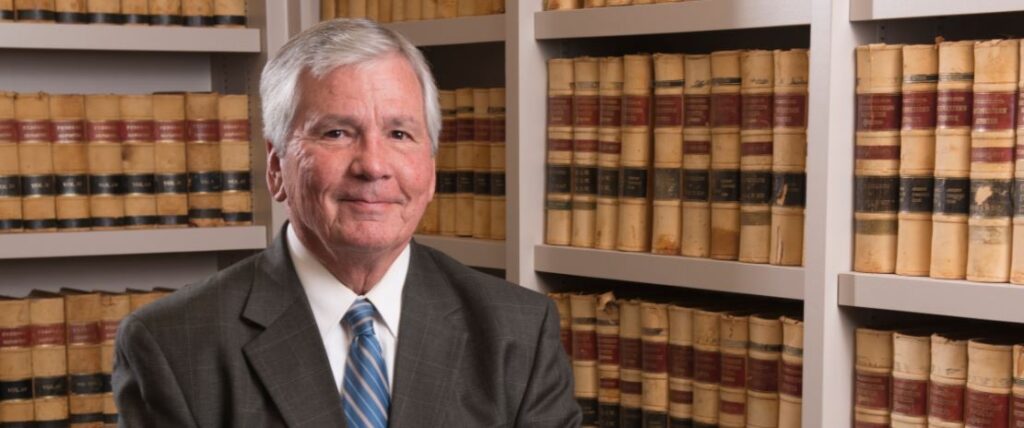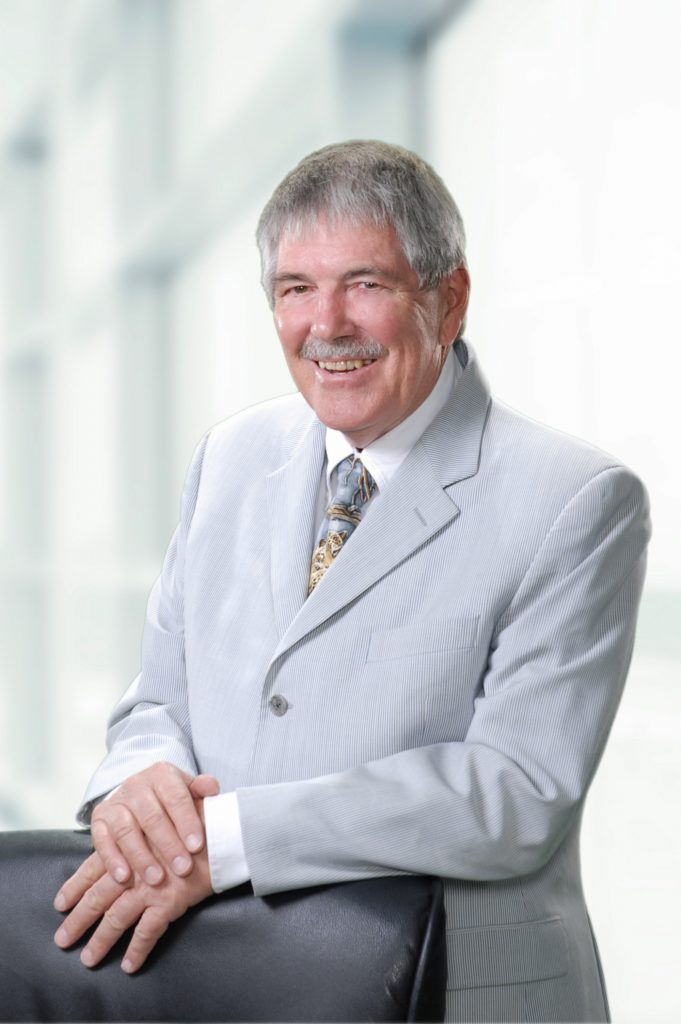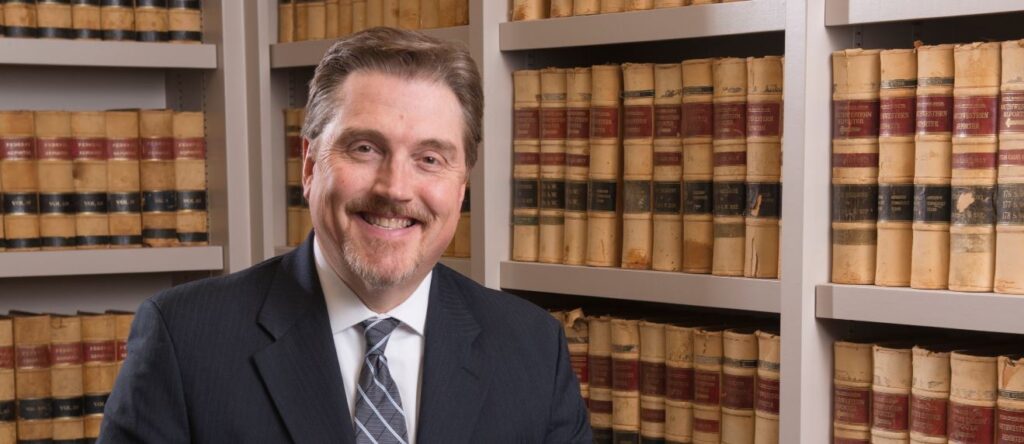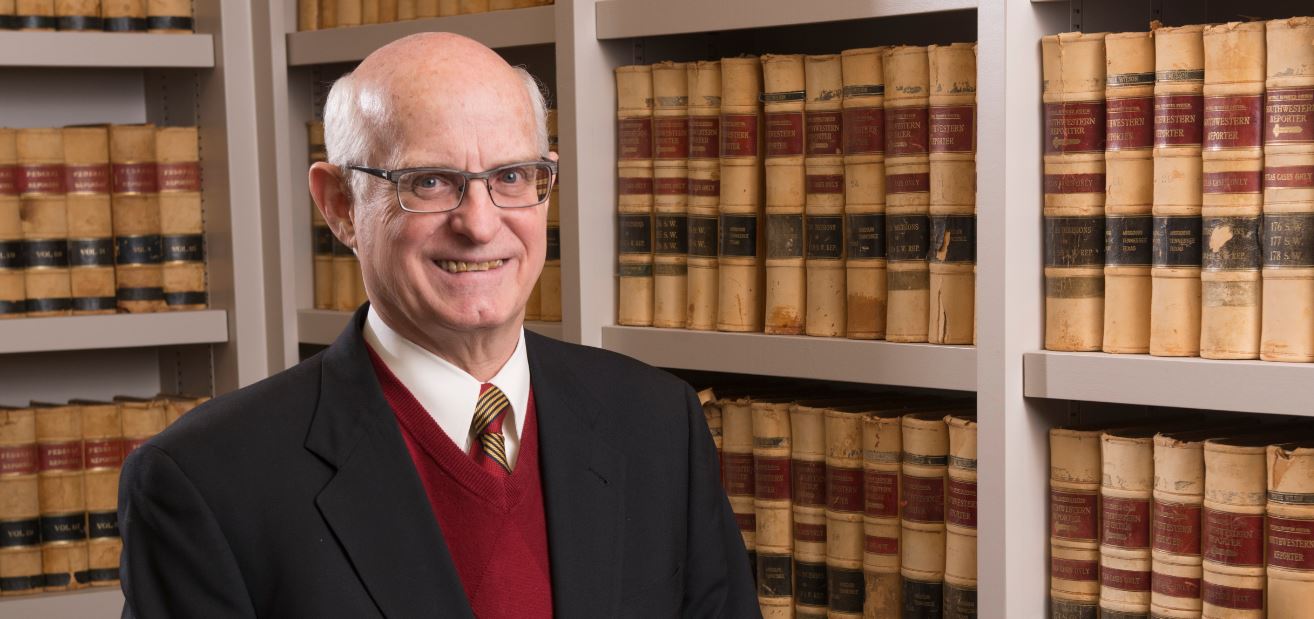Tommy Swann has told the story many times.
Shortly after joining the McCleskey Law Firm in 1979, bankruptcy laws changed. The late Harold Harriger told Tommy he’d be the firm’s bankruptcy lawyer, asking him to learn the changes.
Tommy’s practiced law in many other areas in more than 40 years at the firm, but his main area of practice has been bankruptcy – protecting creditors.
But now the Wilson native is retiring, taking on the title “Of Counsel.”
“I’ll still be around. If anybody has questions about something I’ve handled I can be here to answer questions or give advice to other lawyers. Will Griffis will take over the bankruptcy practice and I’ll be available to answer questions for him,” he said.
It was time, Tommy felt.
“I’m 75 and wanted to make sure I retired while I was still at the top of my game. I’ve seen too many athletes retire past their prime and it’s not pretty,” he said, laughing.
“And it will give me time to do stuff with my wife Maxine and family while we still have good health,” he added.
The Swanns have two children and six grandkids.
Short-term retirement means “all I’ll probably do is quarantine at home and social distance. I thought Maxine and I would travel – we’d like to do some traveling post-COVID.”
Tommy expects to stay active with the Rotary Club of Lubbock, where’s he’s on the board and Hillside Christian Church.
Four-plus decades at McCleskey have been a joy because of his colleagues, he said.
“I just like the people. It’s a great group of lawyers – great lawyers and great people. We have some of the best lawyers you’ll find anywhere,” he said. “
Those lawyers feel the same about Tommy.

“I really hate to see him go. For one thing, it now makes me the oldest member in the firm – age-wise,” said Jerry Kolander, McCleskey’s managing partner, who’s worked with Tommy all the time Tommy’s been with the firm.
“Tommy’s always been available. If I had a legal question and needed to consult with another lawyer he was always available to listen, find information for you and give guidance and direction to help you resolve your question,” said Kolander.
“Plus, he was always fun to talk to about sports – Texas Tech sports specifically,” he said.

Don Graf, who was already with the firm when Tommy joined and is now also “Of Counsel,” praised Tommy.
“He’s adept at bankruptcy law – he would handle large-dollar controversies extremely well,” said Graf, who said he was also impressed by Tommy’s knowledge of real estate law. “He was able to handle any type of real estate transaction with ease.”
“He’s always been easy to get along with and everybody likes him,” Graf added.

Bill Lane has practiced with Tommy all 31 years he’s been with McCleskey.
“It’s been a privilege and honor to have Tommy as both a mentor and partner during my 31-year career with the law firm. I have never met an attorney who has allowed God to direct his practice more than Tommy. He would be in my opinion the epitome of a Christian servant and advocate for his clients,” he said.
Tommy also appreciates his clients.
“I’ve been very blessed with clients I’ve represented – banks, agriculture lenders, title companies and a lot of businesses and people in the Lubbock area,” he said.
Besides bankruptcies, Tommy’s drawn up wills, worked on probates, real estate and general transaction work – “a little bit of everything,” he said.
Tommy grew up on his family’s farm, southeast of Lubbock, but never seriously considered farming.
“My dad wanted me to go to college and learn to do something other than farming and do it for a few years. Then I could come back to the farm if I wanted,” he said.
“I didn’t think I wanted to get into the stress of farming with drought and hail and those type things – farming can be so uncertain,” he said.
Tommy got a bachelor’s degree from Texas Tech University in Ag Economics.
“I took my last final on January 19, 1969 and was in the Army February 18,” he said. “The draft board said they were going to take me in April, and I said, ‘let’s go ahead and get it over with,’” said Tommy.
He spent a year at Fort Bliss in El Paso before spending a year in war-torn Vietnam working as a clerk in a personnel service company.
“I worked in an office in Long Bihn and then in Da Nang. We processed personnel information,” he said.
Tommy could see and hear artillery and bombs nearby where he was but was never in harm’s way.
After the Army, he came back to Texas Tech and got a master’s degree in Ag Economics.
He worked for a company called Water Incorporated that explored bringing water to West Texas from the Mississippi River. He didn’t see much opportunity for advancement after three years.
“I started looking for other things to do and it’s like God just brought the idea of law school into my mind. That’s when I applied,” Tommy said.
He had to pay a late fee to take the LSAT, was accepted into Texas Tech’s law school at age 30 and joined McCleskey after graduating a few years later.
After the bankruptcy laws changed in the late 1970s making it easier to file for protection, Tommy said about 75-80 percent of his work was in that area into the 1980s.
“It was a time when interest rates were so high and farmers were having a hard time making a living,” he said.
Under Chapter 12 Bankruptcies for Farmers, the farmer proposes a plan on how to pay creditors.
“My job was negotiating a way to make sure the creditor was protected as much as possible,” he said.
If possible, Tommy and his creditors tried to work with the farmers.
“In one case there was a security interest in a tractor and at the first meeting we worked with the debtor allowing the farmer to keep the tractor and paying it off,” he said.
A while after the case had been closed, Tommy received a handwritten note from that couple. It read, “we appreciate you being kind to us, we really needed to see a smile.”
“I wasn’t trying to treat them any different, I was trying to represent my own client well. But letting those people know that they had worth, made a difference when they were going through a difficult time,” said Tommy.
But not all cases are like that. When a debtor doesn’t want to work with the creditor, Tommy takes remedies the law provides.
“Some people make it hard. You end up suing them, getting a judgment against them. There have been times we’ve had to foreclose on property and pick up personal property and sell it and go through court to do that, if nothing can be worked out,” he said.
The percentage of bankruptcy work Tommy has done as part of his overall practice has fluctuated over the years – down to about 25 percent in the early 2000s.
“Then in the last five years or so it’s been about 50 percent,” he said.
The Creditor’s Rights course he took at Tech’s law school helped prepare him for what Harold Harriger assigned him.
As an undergrad, Tommy said his Production Economics class was also very helpful.
“It was just interesting. I had a good teacher and ended up putting it to use my entire career,” he said.
